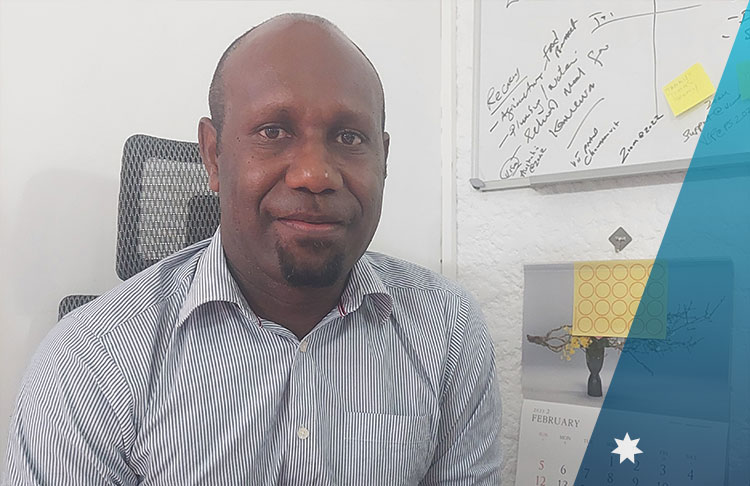
To celebrate National Education Day, we speak with Australia Awards alumnus Fremden Yanhambath. Fremden graduated with a Master of Leadership & Management – Vocational Education & Training from the University of Newcastle in 2013 and is now the Director for Vanuatu Skills Partnership. He is also Chair of Council for Vanuatu Institute of Technology and an advocate for rewriting the narrative as to what academic success can encompass.
Fremden states “being able to provide certified qualifications is a great asset to the nation. It ensures communities throughout the provinces have further opportunities for education beyond their schooling years, and recognises the different pathways each individual can choose to take”. This has also been recognised within the Australia Awards Scholarships 2024 intake, with Technical and Vocational Education (TVET) being offered as a priority qualification on offer, in the areas of: training and assessment, construction, health, mechanics, information technology and hospitality management.
As various sectors continue to expand there is a high demand for skilled and qualified professionals. The Vanuatu Skills Partnership is a dynamic co-investment between the Governments of Australia and Vanuatu for the continued development of the national skills system. The partnership aims to improve the quality of local delivery of the training skills required for inclusive and sustainable private sector growth. It also places great emphasis on supporting the developmental leadership and good governance to drive service delivery reform.
Through a decentralised operation of Provincial Skill Centres, a strong link between demand and supply has been initiated with these centres contracting local training providers and industry coaches to deliver skills that will lead to sustainable productivity, increased employment and greater social inclusion.
Core collaborative work streams include skills for tourism with the Department of Tourism and Vanuatu Tourism Office, skills for handicraft with the Department of Industry, skills for agribusiness with the Department of Agriculture, skills for providers with leaders across national and provincial government, and skills for social inclusion with the Ministry of Justice and Community Services.
Fremden further explains “when thinking about education and achievement it is important to recognise individual strengths and work with them. For some, this may mean aspiring to a university degree whilst for others this may look very different”.

